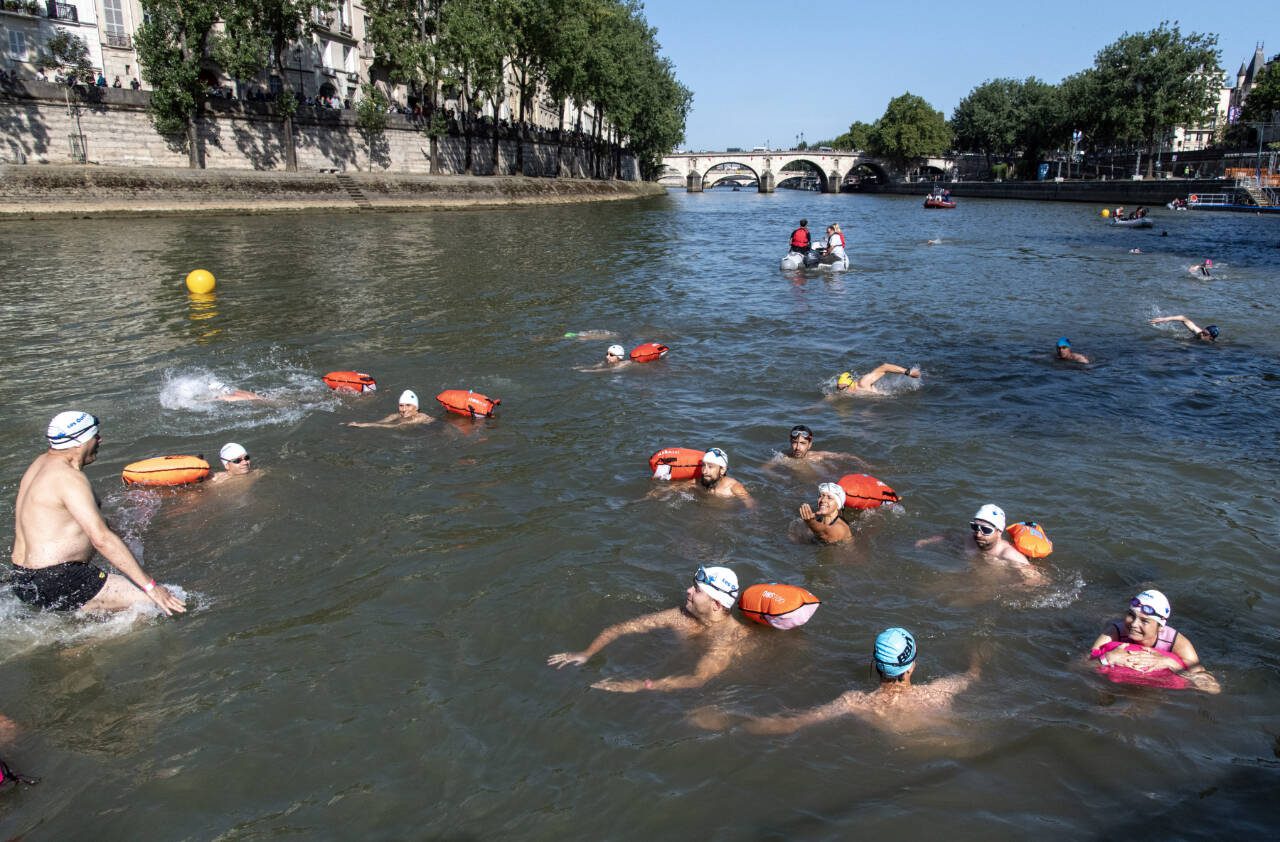By Brian P. McCullough / The Conversation
Europe is in the midst of a heat wave, and while Olympic athletes in Paris for the 2024 Summer Games might be spared the worst of it, the weather will still be hot.
As global temperatures have risen, major sporting events like the Olympics and FIFA World Cup have had to adapt to high heat and extreme storms to keep athletes and fans safe and allow the games to go on.
Olympic organizers have moved events such as marathons to early mornings and even to cooler cities. FIFA, the governing body for world soccer, pushed the 2022 Men’s World Cup back from its usual time in June to late November so it could be held in Qatar.
The heat risks and the environmental impact of major sporting events have led some people to question whether these events should be held at all. But as someone who studies sport management and sustainability in an area I coined as “sport ecology,” I believe that radical approach misses the benefits, including the Olympics’ ability to promote sustainable actions to the public worldwide.
How rising global heat affects the Olympics: Sports have good reason for caring about sustainability: Climate change can put athletes’ and fans’ health at risk and even put the future of some sports in doubt.
Winter sports face the greatest threats from climate change as temperatures rise and precipitation changes, dramatically shortening winter sports seasons in many areas. In 2022, the Beijing Winter Games had to artificially create snow so it could have ski runs at all. The International Olympic Committee has delayed its decision to select Winter Games host cities for 2030 and beyond because of the uncertainty of winter sports.
In the summer, global warming fuels extreme heat and storms that can affect the quality of the competition and the health of the athletes and spectators.
Major sport federations and leagues, as well as the Olympics, have responded to the risks by delaying competitions to cooler times of day or year, implementing water breaks and offering more player substitutions.
Organizers of the Tokyo Summer Games, held amid a fierce heat wave in 2021, had preemptively moved the marathon to Sapporo, more than 500 miles north of Tokyo, so athletes could run in cooler weather. They also delayed competitions during the Games to avoid extreme heat and excessive rain.
Olympic progress toward sustainability: Any large event like the Olympics can produce vast carbon emissions through its construction, transportation needs and energy use.
That impact, and the risks it creates for sports and their athletes, are why sustainability has been a pillar of the Olympic charter since 1996 and is a focus of its planning for the future. In 2012, the London Olympics pioneered a new international certification standard, ISO2012, which provides guidelines for any large event to make more sustainable choices, from construction to catering.
The 2024 Paris Games, from July 26 to Aug. 11, and Paralympic Games, Aug. 28 to Sept. 8, are certified to the latest standard, and organizers are taking many steps to reduce their climate impact.
The organizers plan to power the events’ operations with 100 percent renewable energy from wind and solar. They are using existing venues when possible, had new ones built with low-carbon concrete and recycled materials, and brought in thousands of seats made of recycled plastic.
All furniture and temporary buildings approved for the Games also must have a contractually guaranteed second life, rather than going into a landfill. All of the competition venues are on public transportation, allowing for fewer vehicles in the streets. Even the food is targeted for a 50 percent emissions cut compared with the average meal by increasing the use of plant-based foods. The Paralympics will use the same venues and housing in the weeks that follow.
That doesn’t mean the 2024 Olympics won’t have a large carbon footprint, however, particularly as many spectators and athletes arrive by plane. But the organizers are aiming for the construction and operations emissions to be half those of the London and Rio Games in 2012 and 2016.
World’s fair of sustainability: The Paris Olympic Games is an example of what large sporting events can do to reduce their impact on the environment and promote sustainability solutions to a global audience. Spectators will experience sustainability firsthand, and organizers will promote the Games’ sustainability efforts.
Such campaigns can influence people’s everyday behaviors and even increase their advocacy for sustainability in their home communities.
Suggestions to reduce the scale and size of sports events or even eliminate commercialized sports, ending spectator sports as we know them, overlook the ability of sports to influence and change human behavior.
Sustainability is a constantly evolving process of learning from the past to improve for the future.
The 2024 Olympics’ strategies, building on those used in previous events, and what Paris learns in carrying them out, will also help in planning for future events, including the 2028 Summer Games in Los Angeles.
In essence, the Olympic Games, the largest sporting event in the world, is a sport sustainability world’s fair. It highlights what is possible for a sporting event through collaborations with international corporations to reduce its environmental impact. And it influences others to follow suit, whether that is other sporting events, leagues and federations or spectators from around the world.
Brian P. McCullough is an associate professor of sport management at University of Michigan. This article is republished from The Conversation under a Creative Commons license.
Talk to us
> Give us your news tips.
> Send us a letter to the editor.
> More Herald contact information.

























